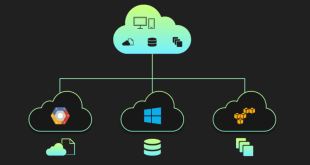As technology continues to advance at an exponential rate, the realms of quantum computing and cloud computing are converging to unlock unprecedented potential. Quantum cloud computing is an emerging field that harnesses the power of quantum mechanics to enhance the capabilities of cloud infrastructure. In this comprehensive blog, we delve into the fascinating world of quantum cloud computing and explore its profound impact on the future of digital infrastructure and cloud computing services.
Understanding Quantum Computing
Quantum computing is a paradigm shift from classical computing, where information is processed using bits (0s and 1s). In contrast, quantum bits, or qubits, can exist in multiple states simultaneously due to superposition and entanglement, enabling complex calculations to be performed at incredible speeds.
Embracing Quantum Cloud Computing
Quantum cloud computing combines the principles of quantum mechanics with the flexibility and scalability of cloud computing. By integrating quantum capabilities into cloud infrastructure, businesses can access quantum resources on-demand, without the need for significant investments in quantum hardware.
Quantum Supremacy and Cloud Applications
The quest for quantum supremacy, where quantum computers outperform classical computers in specific tasks, has profound implications for cloud-based applications. Quantum algorithms can revolutionize cryptography, optimization, and machine learning, paving the way for more secure and efficient cloud services.
Enhancing Cloud Security with Quantum Key Distribution (QKD)
Quantum Key Distribution (QKD) offers an unparalleled level of security for data transmission in the cloud. QKD leverages the laws of quantum mechanics to establish secure encryption keys, immune to eavesdropping attempts, thereby fortifying cloud security.
Overcoming Infrastructure Limitations
Traditional data centers face limitations in terms of processing power and storage. Quantum cloud computing can overcome these constraints by augmenting classical servers with quantum co-processors, enabling advanced computations and data handling.
Quantum Entanglement and Data Transfer
Quantum entanglement enables instantaneous communication between entangled particles, regardless of distance. Leveraging this phenomenon, quantum cloud networks can achieve faster data transfer rates, reducing latency and enhancing overall performance.
Quantum Cloud as a Service (QCaaS)
QCaaS allows users to access quantum computing resources through the cloud, making this cutting-edge technology more accessible to businesses of all sizes. This democratization of quantum computing empowers innovators to explore new possibilities without extensive investments.
Quantum Machine Learning
Quantum machine learning is an exciting area of research that harnesses quantum algorithms to optimize machine learning models. Cloud-based quantum machine learning platforms can significantly accelerate model training and prediction tasks.
Quantum Cloud Infrastructure Challenges
While quantum cloud computing holds immense promise, it also faces various challenges. Ensuring qubit stability, mitigating errors, and scalability are among the hurdles that researchers and cloud providers must overcome.
The Future of Quantum Cloud Computing
The synergy between quantum computing and cloud infrastructure is set to redefine the technological landscape. Quantum cloud computing is expected to drive breakthroughs in fields such as drug discovery, materials science, and climate modeling, pushing the boundaries of human knowledge.
Final Words
Quantum cloud computing is poised to disrupt the realm of infrastructure and cloud computing services, unlocking unparalleled possibilities for industries and research. As we move towards a quantum-powered future, businesses must embrace this transformative technology to stay competitive and lead the way in innovation.
Commonly Asked Questions
1. How does quantum cloud computing differ from traditional cloud computing?
Quantum cloud computing harnesses the principles of quantum mechanics to enhance the capabilities of cloud infrastructure, while traditional cloud computing relies on classical computing methods.
2. Can quantum cloud computing impact cybersecurity?
Absolutely! Quantum Key Distribution (QKD) can significantly enhance cloud security by providing unbreakable encryption keys.
3. Is quantum cloud computing accessible to small businesses?
Yes, with Quantum Cloud as a Service (QCaaS), small businesses can access quantum computing resources through the cloud without the need for substantial investments.
4. What are the challenges facing quantum cloud infrastructure?
Researchers and cloud providers are currently working to overcome challenges related to qubit stability, error mitigation, and scalability.
5. How will quantum cloud computing shape the future?
Quantum cloud computing is expected to drive groundbreaking advancements in various fields, from drug discovery to climate modeling, revolutionizing industries and scientific research.
 webfily
webfily



